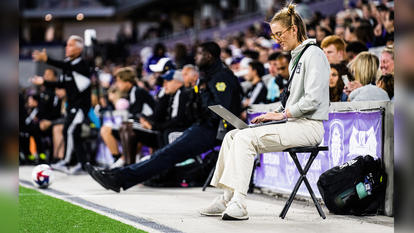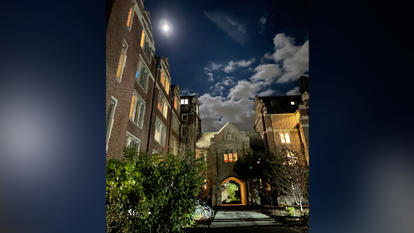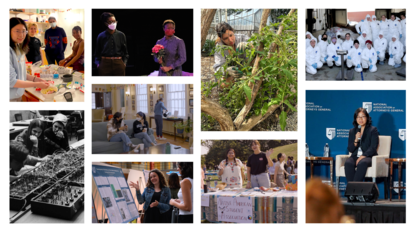A Roundup of #WellesleyVotes Stories To Read on the Eve of the Presidential Election
The 2020 election, which will take place on November 3, will be historic for including a woman of color on a major party ticket for the first time, and also because it is taking place during the COVID-19 pandemic. As of October 29, early voting had reached 61.7 percent of 2016’s total turnout.
In advance of election day, take a look back at a collection of #WellesleyVotes stories where faculty, students, and alumnae have discussed the issues important to them in this election year.

“If you were married, any property, wages, or inheritance you earned could belong to your husband—because you did not exist separately from him. If you were Black, the fresh legacy of slavery still barred you and your family from nearly every right and benefit of society.
Put simply—legally, politically, and economically, women were not considered individuals. Until they fought back.”—The Fight for—and Against—the Vote
“In my intellectual view, this activism, it’s so, so important—the outpouring on the streets, the social media, the accountability of elected officials, because they’re getting people calling in or emailing in about Breonna Taylor and that kind of thing is so important,” she said. “But it also needs to be translated to the ballot box, and it needs to be translated into voting and be harnessed for political change.” —Student and Professor Connect Through Research into Politics and Race
“John Lewis finished everything for me when he did a sit-in on the floor of the House for gun control,” Chapis said. “That night was the night I decided that I was not going to be programming robots.” —Inspired by John Lewis, Wellesley Student Works to Educate Voters
“COVID-19 just kind of pulled the sheets, if you will, off of structural racism in this nation.” —Wellesley Hosts Discussion on Racial and Global Disparities in COVID-19

“I think with the upcoming election, as well as with the current pandemic, we are consuming so much math and statistics every day, just by listening to our politicians and the news...There are real implications for not understanding this math we are being bombarded with…” —What Can We Learn from the Use of Math in Political Speeches?
“[Ginsberg] questioned why the store owners’ religion, in this case, is more important than the religion of the person who wants to use birth control. It is this kind of logic and thinking that will be sorely missed on the Court in the future.” —Professor Nancy Scherer on Ruth Bader Ginsburg’s Notorious Legacy and the Future of the Supreme Court
“For Black Americans this looks like reparations for 350 years of racialized plundering…for people who have accused the 1619 Project of being anti-American, I often wonder, did they actually read my essay? Because my essay is the most patriotic thing I’ve ever written.” —Nikole Hannah-Jones Discusses the Legacy of 1619 and Racial Justice Today With the Wellesley College Community
“What does it mean to be a force for good within a corrupt system?...I’m happy Wellesley students are grappling with these issues, but I think it’s worth grappling with and then voting.” —Why Vote? Ask Alex Joseph ’10

“You take it very, very seriously because people’s lives are on the line. Literally lives and livelihood are on the ballot, when we go to vote.” —On Black Lives and Black Votes: “We Belong, We Are Here to Contribute,” Says Massachusetts State Rep. Liz Miranda ’02
“I realized this is my civic duty to my country, to be involved.” —Wellesley Volleyball Team Encourages Fellow Athletes to Register to Vote
“Abstaining from voting is a vote for what you do not want. If you do not vote, you cannot complain about the system. Your vote is how the system changes. Be the change.” —Why Vote? Ask Joy Styles ’96
“Don’t just stand on the sidelines if you don’t like it. Get in the game … Change the machine. Change the game.” —Why Vote? Ask Dolores Arredondo ’95



